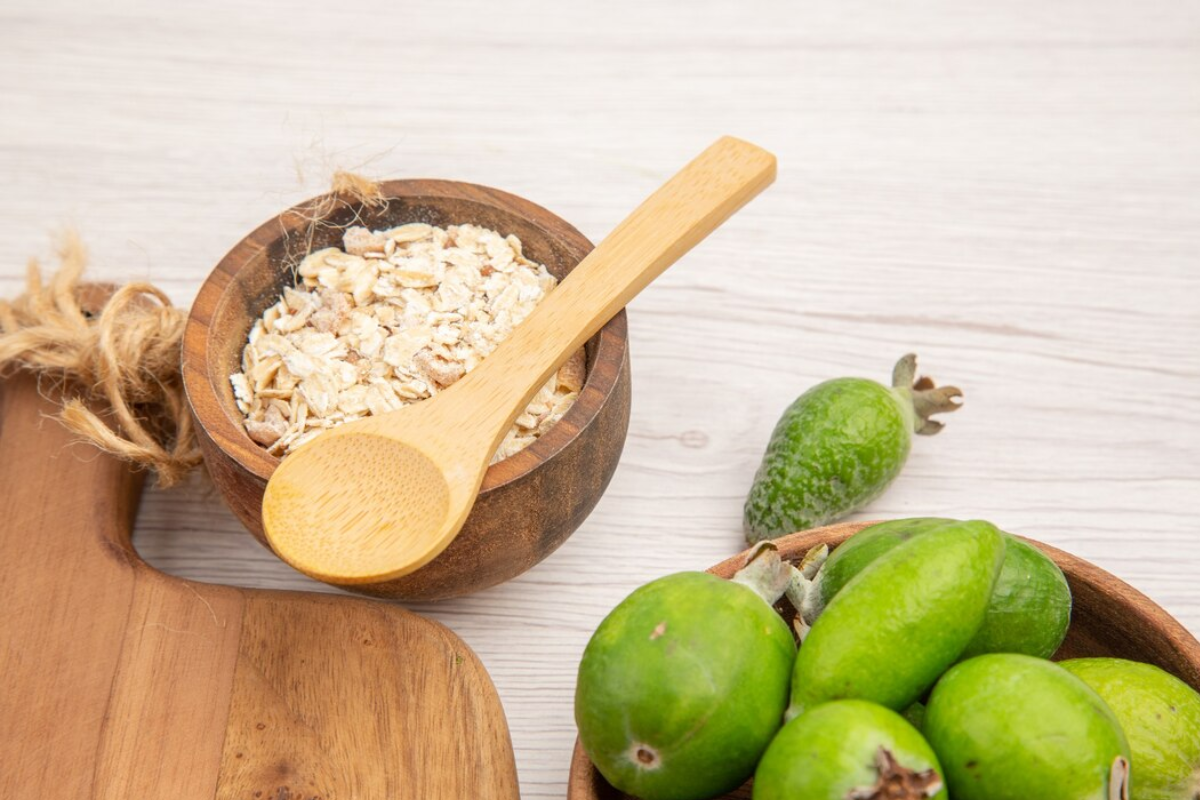What Is Soursop and Why Is It Popular?
Soursop, also known as Graviola or guanabana, is a tropical fruit found in parts of the Caribbean, South America, and Southeast Asia. It has a spiky green outer skin, soft white flesh, and a flavor often described as a mix between pineapple and strawberry. While its taste draws people in, the growing interest in soursop benefits has made it even more popular in wellness circles.
This fruit is used in juices, smoothies, and herbal remedies. Many believe it offers natural health support, which has increased its visibility in both traditional and modern health conversations. As people search for more plant-based ways to support their health, soursop’s reputation continues to grow.
Key Nutrients Found in Soursop
Soursop contains several important nutrients that may help the body in different ways. While it’s not a miracle cure, the combination of vitamins, minerals, and plant compounds gives this fruit its wellness appeal.
Vitamins and Minerals That Stand Out
Soursop is a good source of vitamin C, a well-known antioxidant that supports immune function and helps the body repair tissues. It also contains small amounts of B vitamins, such as thiamine, niacin, and folate, which help with energy and metabolism.
In terms of minerals, soursop offers potassium, which supports heart function and muscle health. Magnesium and iron can also be found in smaller amounts, helping to round out its nutritional profile. These nutrients may not be unique to soursop, but having them in one tasty fruit makes it an attractive part of a healthy diet.
Natural Compounds Linked to Wellness
Beyond the basic vitamins and minerals, soursop contains unique natural compounds called acetogenins. These have been studied for their potential biological activity. While research is still ongoing, some findings suggest that these compounds might support the body’s defenses and overall wellness when consumed in moderation.
Soursop also contains flavonoids and alkaloids — plant chemicals with antioxidant properties that may help protect the body’s cells from stress and damage over time.
Potential Health Benefits of Soursop
Many people are curious about the real soursop benefits, and while some claims may be exaggerated online, a few areas do show promise based on early research and traditional use.
Immune System Support
The vitamin C in soursop is known to help the body’s immune system work better. Vitamin C helps white blood cells function properly and may shorten the length of common colds. Eating foods rich in this vitamin can be a simple way to support your immune defenses, especially during cold and flu season.
May Help Fight Inflammation
Inflammation is the body’s way of responding to injury or illness. However, long-term inflammation can contribute to various health problems. Some of the plant compounds in soursop, such as flavonoids and alkaloids, have been linked to anti-inflammatory effects in early studies. While more human research is needed, the fruit may play a small part in helping reduce inflammation when included in a balanced diet.
Antioxidants and Their Role in Health
Antioxidants help fight damage caused by free radicals, which are unstable molecules that can harm cells. Over time, too much damage from free radicals can increase the risk of chronic diseases. Soursop is rich in antioxidants like vitamin C, tannins, and phytochemicals, which may support long-term health by helping protect the body from oxidative stress.
Again, soursop isn’t a cure or treatment for disease — but adding more antioxidant-rich fruits like soursop to your diet can help support your body’s natural defenses over time.
How to Add Soursop to Your Diet?
If you’re interested in trying soursop, there are several ways to enjoy it — just make sure you consume it safely and in moderation.
Common Ways People Eat or Drink Soursop
The flesh of the soursop fruit can be eaten raw, usually after removing the seeds. It’s often added to smoothies, juices, and even ice creams. In some cultures, soursop is boiled into teas or blended into herbal remedies.
You can also find soursop pulp in frozen form, making it easier to use in recipes if you don’t have access to the fresh fruit.
Tips for Picking and Storing It Fresh
A ripe soursop will feel slightly soft when you press it and may have a light fragrance. Unripe soursops can ripen at room temperature over a few days. Once ripe, they should be eaten quickly or stored in the refrigerator for a day or two. The fruit spoils easily, so freezing it for later use is a smart option if you don’t plan to eat it right away.
What Science Says About Soursop Benefits?
Scientific research on soursop is still developing. Many studies so far have been conducted in labs or on animals, not humans. These studies suggest that compounds in soursop may have antioxidant, anti-inflammatory, and antimicrobial properties. However, clinical trials on people are still limited.
Health experts caution against relying on soursop for any medical treatment, especially since some parts of the plant — like the seeds and bark — may contain toxic elements if consumed in large amounts. Still, researchers agree that the fruit itself, when eaten in moderate portions, may offer helpful nutrients and plant compounds.
So, while the data on soursop benefits looks promising, more evidence is needed before making strong health claims. Eating soursop as part of a diverse, healthy diet is a safe and reasonable approach.
Precautions and Side Effects to Know
Although soursop is generally safe when eaten as a fruit, there are a few things to be aware of. Eating large amounts over time may have risks, especially when consuming unregulated teas, supplements, or extracts.
Some studies have linked high levels of certain compounds in soursop to nerve-related issues. This is mostly based on animal studies and isolated compounds, not on moderate fruit consumption. However, it’s a good idea to avoid overuse or relying on soursop as a cure-all.
Pregnant or breastfeeding women should avoid concentrated soursop products, and anyone with health conditions should speak with a healthcare provider before using it in supplement form.
Conclusion
Soursop is a tropical fruit with a unique taste and a solid lineup of nutrients. While more research is needed, early findings suggest it may support immune health, provide antioxidants, and offer mild anti-inflammatory effects. Like many natural foods, the real soursop benefits come from enjoying it as part of a varied, healthy diet.
If you’re curious about soursop, try adding it to smoothies or juices and enjoy its flavor along with the potential wellness boost it may bring. As with all things in nutrition, balance and variety are key.
FAQs
1. Is soursop good for boosting immunity?
Yes, soursop contains vitamin C, which supports immune system function. It may help your body respond better to infections and stress.
2. Can soursop help with digestion?
Soursop contains fiber, which can support healthy digestion by helping with regular bowel movements. It also has mild natural compounds that may soothe the stomach.
3. Are there any risks in eating soursop daily?
While the fruit is safe in moderation, consuming large amounts or using soursop supplements regularly may carry some risks. It’s best to enjoy it a few times a week as part of a balanced diet.
4. How does soursop compare to other tropical fruits health-wise?
Soursop has similar nutrients to fruits like papaya or mango but also contains unique plant compounds not found in all tropical fruits. It offers a different flavor and a mix of benefits, making it a good addition to your fruit rotation.
My name is Mustafa, and I have been blogging for over 5 years. I am passionate about sharing complete, accurate, and helpful information with my readers. Along with managing content on The Matcha Read, I also contribute blog posts to premium websites. My goal is to provide valuable insights in a clear and easy-to-understand way, so every reader walks away with useful knowledge.










